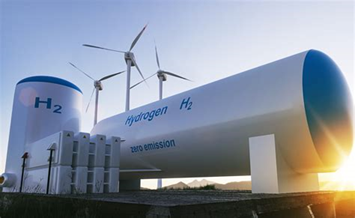Hydrogen's climate problem
Larry Hughes
19 April 2023
The Nova Scotia government's approval of the Bear Head hydrogen-ammonia facility last week means Atlantic Canada now has three hydrogen projects in the running to produce green ammonia from green hydrogen.

According to the International Energy Agency's net-zero emissions scenario, global demand for hydrogen is expected to grow from 94 million tonnes in 2021 to almost 180 million tonnes in 2030. New demand is projected to occur in long-distance transportation (fuel-cell electric vehicles), steel-making, and other sectors, both new and existing, which can use hydrogen to decarbonize their processes.
However, fugitive hydrogen emissions (from, for example, hydrogen production, storage, or the improper handling of hydrogen, such as when refueling vehicles) can impact the climate in a least two ways.
First, hydrogen is a greenhouse gas. It has a global warming potential about 11 times that of carbon dioxide.
Second, hydrogen can react with the hydroxyl radical, a molecule consisting of one hydrogen and one oxygen atoms.
Good news you might think. If hydrogen reacts with the hydroxyl radical, there will be less hydrogen in the atmosphere and less impact on the climate from hydrogen.
True, but the hydroxyl radical also reacts with methane.
Methane, from human sources such as agriculture, waste disposal, and fossil fuel production, has a global warming potential about 28 times greater than carbon dioxide.
If more hydrogen in the atmosphere reduces the volume of hydroxyl radicals available to react with methane, methane will remain in the atmosphere for longer, making it more difficult to meet climate targets.
Admittedly, it would take significant volumes of hydrogen to delay achieving climate targets, but the last thing we need is more delays.
This is not to say we should not increase our reliance on hydrogen, preferably green; however, it must ensure that fugitive emissions from the production, transportation, and use of hydrogen are kept to a minimum.
This will require policymakers and legislators to create regulations which enforce the reduction of fugitive hydrogen emissions.
The Nova Scotia government claims the province is a leader in the production of green hydrogen. It should aim higher and become a leader in the development of low emissions hydrogen technology.
Published: AllNovaScotia.com and AllNewfoundlandLabrador.com 19 April 2023